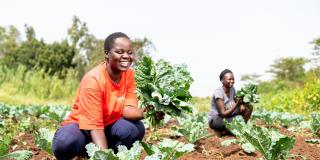
The people VSO work with are facing multiple intersecting crises. They are at the forefront of the climate emergency experiencing extreme weather events such as drought, floods on more frequently. Since 2022 we reached over 400,000 people through our resilient livelihoods programme.*
Women are experiencing an increased burden of care both due to the climate crisis and impact of COVID-19. The situation for young people entering the job market is dire and many leave rural areas due to a lack of livelihoods and increased food insecurity.
VSO focuses on ensuring food, job and income security for marginalised women, young people and people with disabilities (PWD). Our aim is for marginalised and vulnerable women and young people to enjoy decent livelihoods and a dignified life. To ensure this VSO works to strengthen the agency and voice of marginalised women, small-scale food producers and young people and their networks to transform food and labour markets, pushing for increased public investment in agroecology and green economy.
Our work supporting livelihoods
Through these global programmes, we mobilise, recruit and place appropriate and skilled volunteers in projects, institutions and communities.
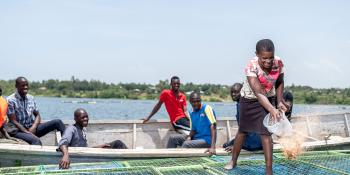
Youth empowerment, green jobs and decent work
Supporting young women, men and informal workers networks to transition to green decent jobs and resilient livelihoods.
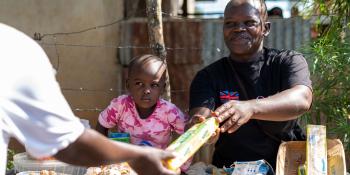
Women’s empowerment, control over incomes and right to food
Promoting women’s right to adequate food, women's control over their incomes and developing climate resilient agriculture.
Our impact in livelihoods 2022/23
Over the last year, we have made a strategic shift in our livelihoods portfolio, deepening the focus on resilience by investing in ‘green’ skills and supporting a shift to agroecology or climate resilient farming. VSO agroecology volunteers and youth climate champions were integral to this change.
Underlying causes of livelihoods insecurity
Women food producers, young people and people with disabilities are particularly impacted by multiple intersecting crises – including the climate crisis, livelihoods crisis, the food crisis, the debt crisis, the roll back on women’s rights, the economic crisis and austerity policies as well as the COVID-19 pandemic and other health emergencies.
The situation for young people entering the job market is quite dire as many of them are migrating from rural areas due to lack of livelihoods opportunities and food insecurity.
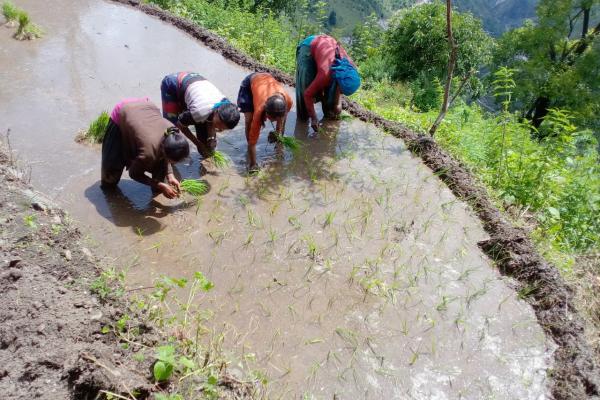
Climate crisis
Many regions and communities where VSO works are increasingly facing climate-induced disasters. Local communities in developing countries that contribute the least to the climate crisis are already facing the impact of the climate crisis with frequent floods, unpredictable rain, increasing temperatures, drought, cyclones and landslides being major challenges to food security and asset building.
Degradation of natural resources and loss of biodiversity has increased, affecting agricultural productivity, food and nutritional security. Climate change is contributing to the rising livelihoods crisis – with nearly half of the global workforce at risk of losing their livelihoods (1.6 billion workers in the informal economy). The climate emergency is also undermining progress through its impact on clean air, safe drinking water, nutritious food supply and safe shelter.1
Social and gender inequalities
There is a rollback on women’s rights globally and space for engagement by women in the decision-making process is shrinking. Inequality of opportunity, access to health, education and income are increasing, exacerbating discrimination against women.2 Social norms and harmful cultural practices including gender-based violence (GBV) and increased unpaid care and domestic work further marginalise women and young girls.
The impacts of climate change are also far more likely to negatively effect women, with 80% of the people displaced by climate change being women. As women are more likely to live in poverty than men, heat waves, droughts, rising sea levels, and extreme storms disproportionately affect women. Cases of gender-based violence usually escalate during times of instability. Women are less able to leave dangerous domestic situations as they face social barriers to economic independence.
Access to financial services, markets, and income inequalities
Access to financial services, markets, and income inequalities have disadvantaged marginalised groups, including youth, women, and people with disabilities. Smallholder women farmers are often excluded from markets. Markets are not only unreliable especially for smallholder farmers in rural areas, but also commercial relations and business rules discriminate against vulnerable groups.3
Labour markets, on the other hand, are not responsive to the needs of young women and men, both in school and out of school, and job opportunities are not present. Women are excluded from accessing credit and other financial services often due to lack of collateral. According to World Bank (2017), close to one-third of adults – 1.7 billion – are still unbanked and about half of unbanked people include women, poor households in rural areas or out of the workforce.4
Youth unemployment
Youth unemployment and underemployment has been identified as one of the most pressing problems facing developing countries. The problem has serious implications for establishing lasting peace and security as well as for building the foundation for future economic prosperity.
Youth unemployment and underemployment combine with other factors to threaten security and stability. Globally, the youth unemployment rate stands at 13.6 percent and unemployment is more prevalent among young women.
Over one-fifth of young people are currently not in employment, education or training (NEET), which means they are neither gaining experience in the labour market, nor receiving an income from work, nor enhancing their education and skills. Young women are twice as likely as young men to have NEET status.5
Alarmingly, the unemployment rate is much higher for youth with more education. Alack of jobs and a lack of skills and experience are high on the list of reasons for unemployment in these countries. Missing out on education and employment creates frustration and demoralization among many youths.
Capacity gaps and market relevance have been observed in several areas of vocational skills in these countries. There are also issues regarding the quality and relevance of the curriculum used in vocational training.
Food and nutrition security
Hunger numbers have risen again sharply due to the COVID-19 pandemic, gender inequality has deepened, and the cost of a healthy diet is out of reach for 3 billion people in the world.6 The UN State of Food Insecurity report launched in July 2021 estimates that one in 10 people in the world go to bed hungry.7
Over a third of the undernourished in the world (282 million) live in Africa, comprising a shocking 21 percent of the population of Africa. More than half of the worlds undernourished (418 million people) live in Asia. There were 46 million more people in Africa and 57 million more people in Asia undernourished in 2020 as compared to 2019, with the Sustainable Development Goal 2 pledge of ending hunger by 2030 looking like a distant dream.
Our food system is broken and solutions to food insecurity are urgently needed to address the multiple challenges of climate and ecological crisis as well as livelihoods and food crisis.
Our projects
Find out more about our current and former projects helping to provide resilient and sustainable livelihoods to the worlds most marginalised people.
Volunteering for development
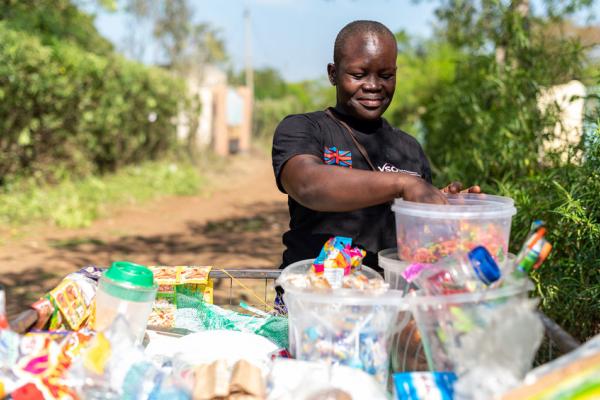
Through our volunteering for development approach, we strengthen the agency and voice of women, small scale food producers, and young people and their networks to:
- Ensure a holistic focus on young girls and women’s empowerment – building on their control over incomes, food security, addressing violence against women, unpaid care work, and protecting women’s sexual and reproductive health and rights.
- We address gender norms in particular where women are considered ‘helpers’ on the farm and not ‘farmers’ and do not often have ‘control’ over land and natural and productive resources.
- Ensure demand for greater investment in public services, including social protection.
- Transition to green jobs and climate resilient agriculture practices to ensure right to food and decent livelihoods
- Ensure increased control over productive resources and incomes
Key activities include:
- Mobilising skilled volunteers to create strategic networks that can facilitate community dialogue and action.
- Identifying the underlying causes and constraints to livelihood resilience by conducting analysis into social and gender inclusion, social accountability and exploring what contexts make people more vulnerable to loss of livelihoods.
- Evidence generation through studies of the labour, market, value chain and unpaid care.
- Livelihood protection and support for the most vulnerable groups including people with disabilities, through the strengthening of social networks, financial and market literacy, access to credit and savings and income-based safety nets, with a focus on those living in fragile contexts
- Empowering young people and women to enable them to access productive resources and address discrimination and harmful social practices.
- Promoting policies that support decent work, inclusive food systems, climate resilience, access to public services, transparency and accountability, whilst promoting the right of marginalised groups to challenge systems and structures.
Stories from livelihoods
Three ways we’re supporting local, eco-friendly business practices in Cambodia
On the Tonle Sap Lake, climate change, overfishing, deforestation, and the depositing of untreated industrial and domestic sewage, are all threatening the natural balance of the region. VSO has supported local people to adapt to this environment by developing green business practices.
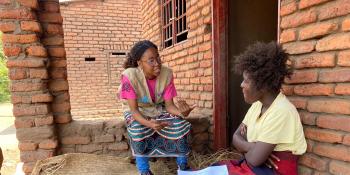
Two volunteers who are tackling food insecurity in Malawi
Malawi - Climate shocks, including droughts, floods, and storms, adversely affect livelihoods and food security in Malawi. Two formidable volunteers are helping to address the challenges of food security through sustainable farming methods.
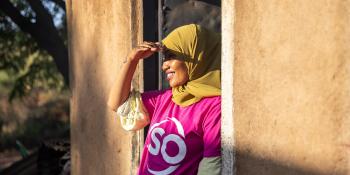
Five things women achieved this year that you might not know about
This International Women's Day, join us in celebrating the resilience of women across the globe with some female achievements you might not have heard about.
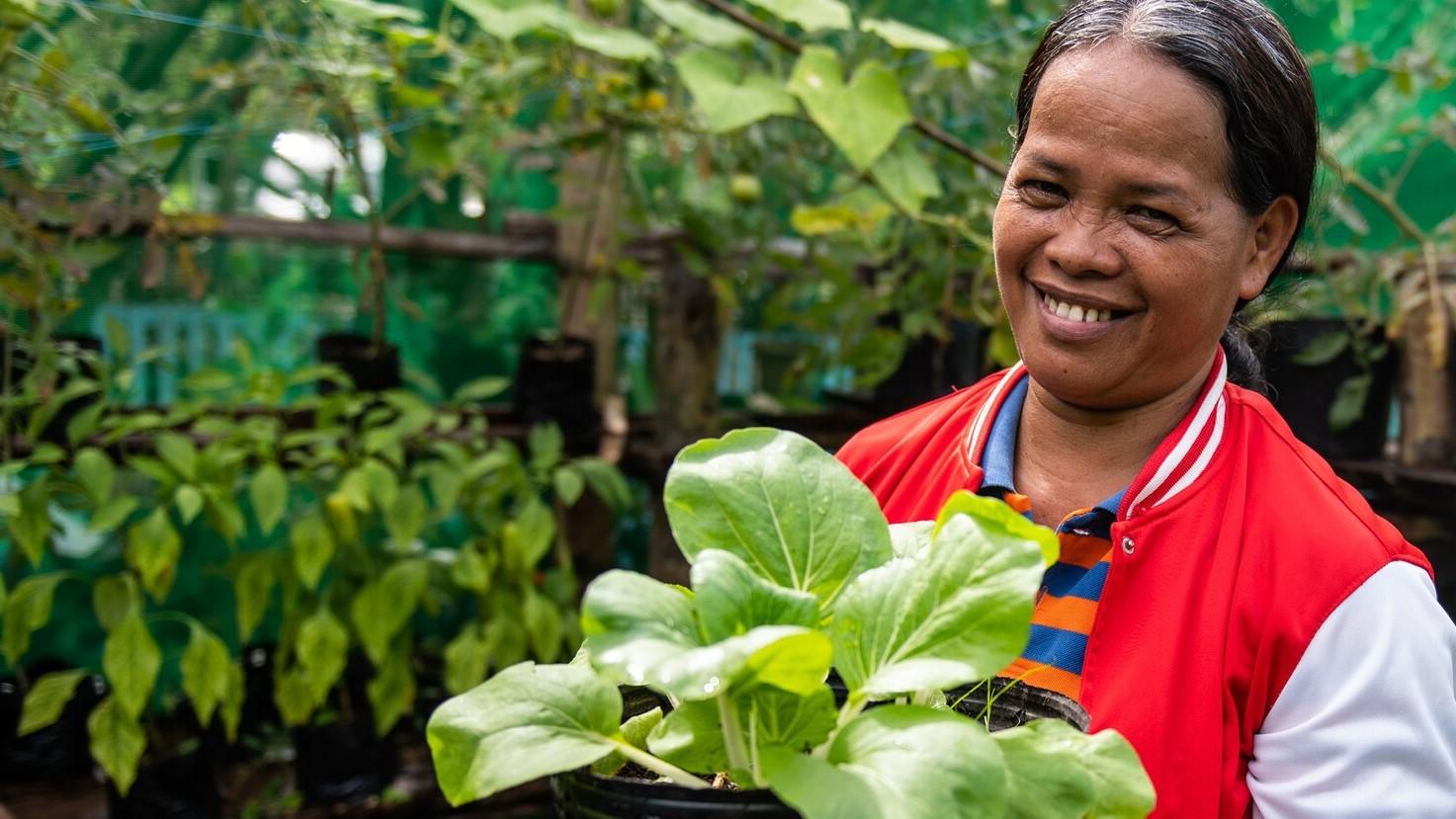
Support us with a donation
*Numbers represent impact achieved in the first two years of VSO’s current strategic plan.
Footnotes
- Intergovernmental Panel on Climate Change, Climate Change 2021, The Physical Science Basis; https://www.ipcc.ch/report/ar6/wg1/downloads/report/IPCC_AR6_WGI_Full_Report.pdf
- Max Roser (2013) - “Global Economic Inequality”. Published online at OurWorldInData.org. Retrieved from: ‘https://ourworldindata.org/global-economicinequality’ [Online Resource]
- https://www.ifad.org/en/market-access
- https://www.worldbank.org/en/topic/financialinclusion/overview#1
- International Labour Organization (2020), Global Employment Trends for Youth 2020, Technology and the Future of Jobs, Geneva
- https://www.fao.org/publications/sofi/2021/en/
- http://www.fao.org/documents/card/en/c/cb4474en
